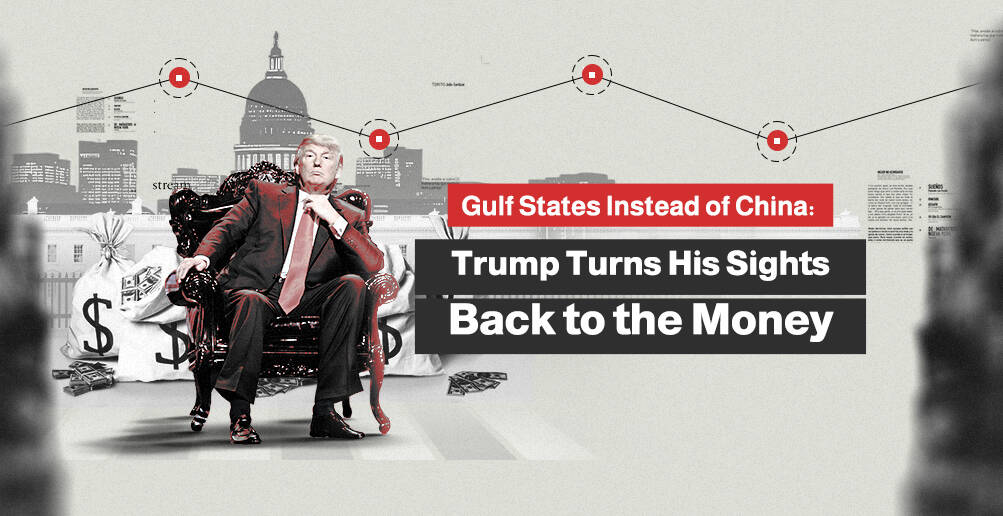Under Climate Activists' Pressure, the ‘Climate-Change Denier’ World Bank President David Malpass Steps Down

World Bank President David Malpass has announced his resignation, saying he will leave office by June 30, a year before the end of his term, at the height of reforms for the financial institution that is under pressure to do more on climate.
Malpass said in a statement that the group is fundamentally sound, financially viable, and well-positioned to increase its impact on development in the face of pressing global crises, stressing that his resignation is an opportunity for a smooth transition of leadership.
Malpass, 66, was the thirteenth president of the World Bank, appointed to this position in April 2019 for a five-year term at the suggestion of Donald Trump.
He did not specify the reasons for his expected departure by June 30, about a year before the end of his term. Malpass referred in a note he sent to World Bank employees, disclosed by the AFP, merely about new challenges.

Malpass’s Career
In April 2019, the World Bank’s Executive Board unanimously elected David Malpass, the US Treasury’s top diplomat, as its new president, continuing a 73-year tradition of an American heading the development-focused international financial institution.
The bank stated that Malpass earlier in his career founded a macroeconomic research firm headquartered in New York City. He also served as Deputy Assistant Secretary of the US Treasury for Developing Countries and Deputy Assistant Secretary of State for Economic Affairs for Latin America.
Malpass, who previously worked as chief economist at Bear Stearns Bank, and advised the campaign of US President Donald Trump in the 2016 elections, was the only candidate for the position.
Malpass holds a BA from Colorado College and an MBA from the University of Denver. He began advanced work toward a graduate degree in international economics at Georgetown University’s School of Foreign Service.
The World Bank website reported that in 2018, Malpass advocated for the capital increase for the IBRD and IFC as part of a reform agenda featuring sustainable lending practices, more efficient use of capital, and a focus on raising living standards in poor countries.
He was also instrumental in advancing the Debt Transparency Initiative, adopted by the Bank Group and the IMF, to increase public disclosure of debt and thereby reduce the frequency and severity of debt crises.
‘Climate-Change Denier’
Malpass has recently faced criticism, with former US Vice President Al Gore accusing him of being a “climate-change denier” and withholding funding for climate projects in developing countries.
During an interview organized by The New York Times the next day, David Malpass refused three times to confirm whether he acknowledged the role of fossil fuels in global warming. Under public pressure, he eventually said, “I am not a scientist.”
Several member countries of the World Bank are pushing for the institution to become an engine in this field, especially in climate change. Environmental groups welcomed his departure.
Friends of the Earth climate group wrote in a tweet on Twitter: “Under David Malpass, the World Bank lost valuable time in fighting climate change.”
Under David Malpass, the @WorldBank lost valuable time in fighting climate change.
— Friends of the Earth (Action) (@foe_us) February 15, 2023
Not only did he fail to stop actions that fuel climate chaos and injustice, Malpass pushed for Wall Street-friendly policies that go against the public interest. https://t.co/wpgObRM3SQ
The organization added: “Not only did he fail to stop actions that fuel climate chaos and injustice, Malpass pushed for Wall Street-friendly policies that go against the public interest.”
Malpass subsequently tried to clean up his comments, telling Politico on Friday that it was a “poorly chosen line.” Malpass at the time defended the bank’s investments and said he would not resign.
Promoted by member states, especially the United States, he launched a reform of the institution last October to better meet the financial needs of developing countries. The implementation of the first phase of the reform is expected to begin next April.
“If he’s not going to be the one who really pushes and pressures the World Bank in a new direction which really works on climate initiatives, then he has to go,” said Thanu Yakupitiyage, an associate director at 350.org, an anti-fossil fuel climate advocacy group.

Corrupted & Not Effective
“I thank David Malpass for his service as President of the World Bank and for his commitment to ensuring a smooth transition,” Treasury Secretary Janet Yellen said in a statement.
To appoint a successor, Yellen hoped for a transparent, merit-based, and speedy appointment process. In 2019, then-US President Donald Trump proposed the nomination of David Malpass, who was an official in his administration.
This came even though Malpass said publicly two years ago that international institutions are wasteful, not very effective, and often corrupt in their lending practices.

In 2019 he was the only candidate to succeed South Korean Jim Yong Kim, who also resigned, and appointed David Malpass in his place. The past four years have been some of the most important years of my career, Malpass emphasized in the letter to his colleagues.
For its part, the World Bank said in a statement that during his tenure, Malpass focused on searching for stronger policies to increase economic growth, reduce poverty, improve living standards, and reduce the burden of public debt. It added that the search for the head of the institution to succeed him will start now, and the United States will propose a candidate.
Under an unwritten understanding, an American will assume the presidency of the World Bank, and a European will run the International Monetary Fund. The World Bank was established in 1944 and supports development projects. It currently has 189 member states and more than ten thousand employees worldwide.
Kevin Watkins, the former head of the charity Save the Children, said: “It will be a US treasury appointment, which is outrageous. There should be a global search for the best candidate.”
The Guardian revealed that the head of the Rockefeller Foundation, Rajiv Shah, has emerged as the favorite to succeed David Malpass as head of the World Bank amid calls for the White House to lose its stranglehold on choosing who should run the global development body.








